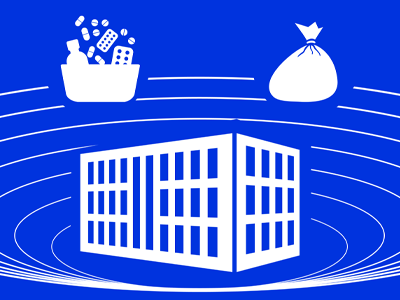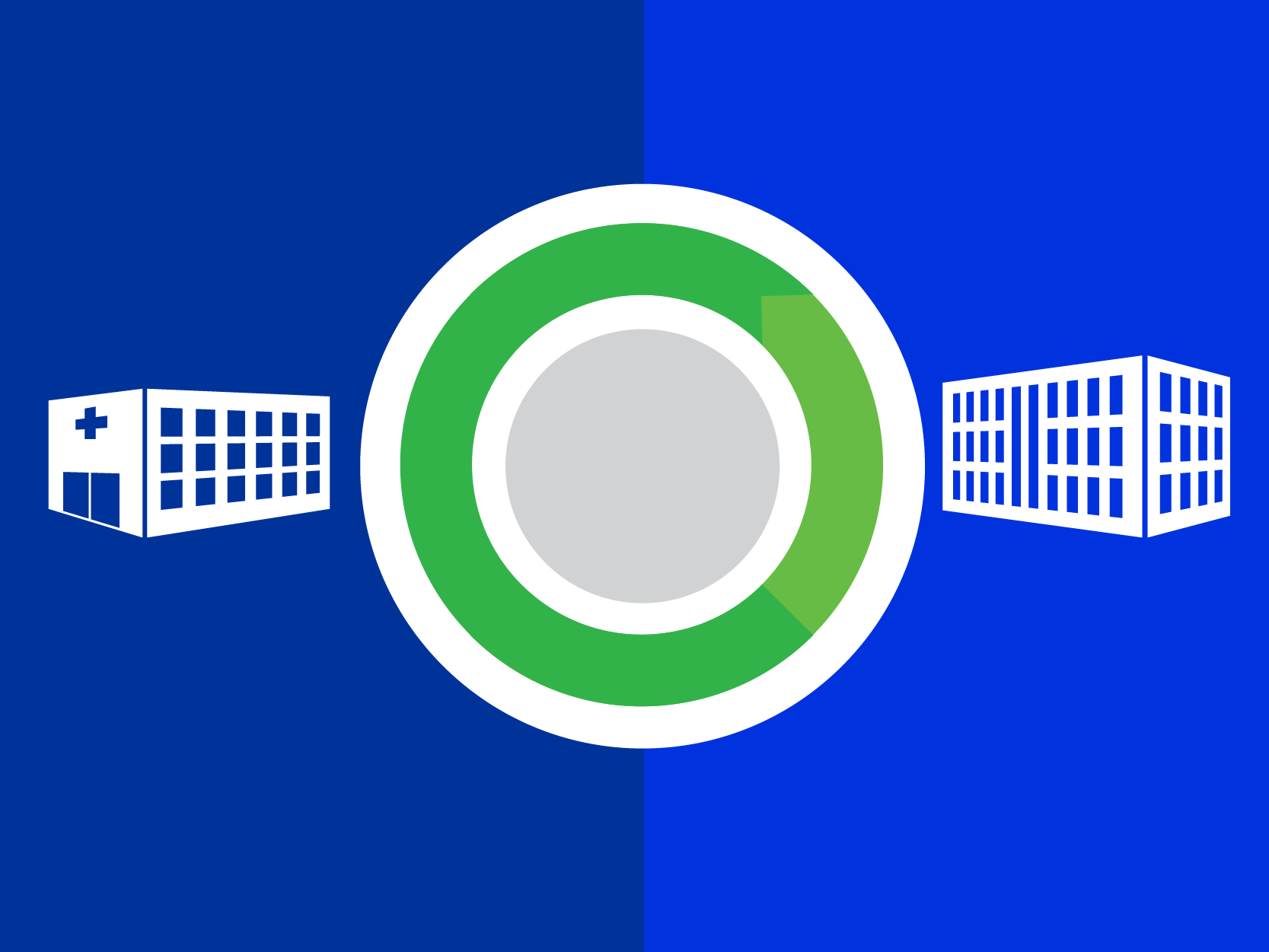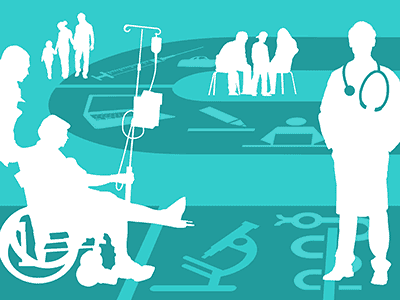Overview
Learn to apply the principles of the circular economy in a hospital or healthcare organization to reduce waste and contribute to sustainable healthcare.
Reducing medical waste is a worldwide challenge that calls for smarter solutions that can make healthcare more sustainable.
This course helps hospital staff, management, users and buyers of medical products and decision-makers make the transition to a circular economy and therefore contribute to reducing waste streams and costs.
This course uses an interdisciplinary approach to create sustainable solutions in hospitals. It includes business cases with visual examples of circular economy strategies presented by experts from the field. These strategies are also a tool to help relieve the supply chain as resources are under increasing pressure.
After taking this course you will master the concept of the circular economy from a hospital perspective. You will learn to apply circular strategies and how to set-up a green team to integrate circular processes in your organization. Finally, you will learn how to make recommendations for reducing waste streams.
This course is part of the program Circular Strategies for Sustainable Healthcare developed by TU Delft’s MedTech experts in close collaboration with industry representatives and renowned institutes. These courses provide not only academic insights but also practical tools and examples which can be implemented in any healthcare organization, and can help you propose and develop your own circular solutions and programs.
Accredited Course
This course is accredited by the Dutch Association for Specialists in Sterile Medical Tools (VDSMH) and by the Dutch Association for Hospital Instrumentation Technicians (VZI). Verified learners who have successfully completed the course (or program) and obtained a certificate can claim accreditation points at one of the professional bodies they are members of.
What You'll Learn:
- Define the basics of circular economy from a hospital perspective
- Translate the circular approaches of the Butterfly Diagram to a hospital or healthcare environment
- Recognize the purpose of a green team and outline its requirements
- Define urban mining and identify urban mining strategies in the hospital
- Analyze waste streams in the hospital and identify how these can be reduced or eliminated
- Formulate a set of recommendations to decrease hospital waste
Free e-book
In addition to 24/7 online access to video lectures and other course material, you will receive an electronic copy of the brand-new book 'Creating a Circular Healthcare Economy'. This book will further equip you to drive sustainable change and embrace circularity in the healthcare sector.
Details
Course Syllabus
Week 1: Basics of the circular healthcare economy, from a hospital perspective
In this week you will learn the basics of the circular healthcare economy, from a hospital perspective. Topics which we will cover this week are:
- The transfer from linear to circular
- The need to transfer to circular healthcare economy
- Explanation of the Butterfly Diagram as a ‘system’ and its use as a model for waste reduction
- The EU Climate Law and Green Deal
- Trend towards reducing medical waste.
Week 2: Applying circular strategies in a hospital environment
In this week you will learn to apply circular approaches. Topics which we will cover this week are:
- Visualizing all Butterfly Diagram approaches as strategies in a hospital.
- Applying the circular strategies of Maintenance, Reuse, Repair, Remanufacturing, Recycling
- Transforming hospitals’ use of circular products and processes
- Product-life-extending programs
- Circular strategies in hospitals
Week 3: Setting-up a green team
In this week you will learn how to set-up a green team. Topics which we will cover this week are:
- Designing a green team
- Integrating circular processes in an organization
- Critical success factors and how to overcome resistance in setting-up a team
- How to create a support base in the organization
Week 4: Urban Mining
In this week you will learn to define urban mining and to identify urban mining strategies in the hospital. Topics which we will cover this week are:
- The definition of urban mining and its relevance
- How to urban mine in a hospital
- Risks of contamination
- Differences between the different wastes streams: household, contaminated and non-contaminated waste streams
- Materials and their properties
- Mono versus mixed waste streams.
Week 5: How to reduce waste streams
In this week you will learn how to analyze waste streams in the hospital and identify how these can be reduced or eliminated. Topics which we will cover this week are:
- Waste reduction strategies
- Waste reduction programs
- Medical devices with extended service-life and longer durability
- Advantages of repair, preventive maintenance, refurbishment in the context of reducing waste streams
- How to separate waste streams.
Week 6: Making recommendations to reduce waste in a hospital
In this week you will learn how to formulate a set of recommendations to decrease hospital waste. Topics which we will cover this week are:
- Writing a waste reduction proposal
- Evaluating a circular proposal
- Creating a sustainable advice network.
Week 7: Summary of the course
In this week we will wrap-up and provide main takeaways as well as additional resources and information. Literature reviews and finding relevant publications were part of this course and we will provide you with more relevant literature on this topic
Qualifications
Certificates
This course is offered on edX.org for free but a certificate is available for a fee.
Accredited Course
This course is accredited by the Dutch Association for Specialists in Sterile Medical Tools (VDSMH) and by the Dutch Association for Hospital Instrumentation Technicians (VZI). Verified learners who have successfully completed the course (or program) and obtained a certificate can claim accreditation points at one of the professional bodies they are members of.
How to request your points?
You can request accreditation points at one of the professional bodies mentioned above. You can do so by sending us an email indicating:
- Name and last name
- Name of the professional body
- Copy of the certificate
- User ID
The request must be sent within 2 weeks from the course completion.
Chartered Engineering Competences
All our online courses and programs have been matched to the competences determined by KIVI’s Competence Structure, a common frame of reference for everyone, across all disciplines, levels and roles.
These competences apply to this course:
- A1: Extend your theoretical knowledge of new and advancing technologies.
- B1: Identify potential projects and opportunities.
- E3: Undertake engineering activities in a way that contributes to sustainable development and a circular economy.
Admission
This is a Massive Open Online Course (MOOC) that runs on edX.
Prerequisites
- None


